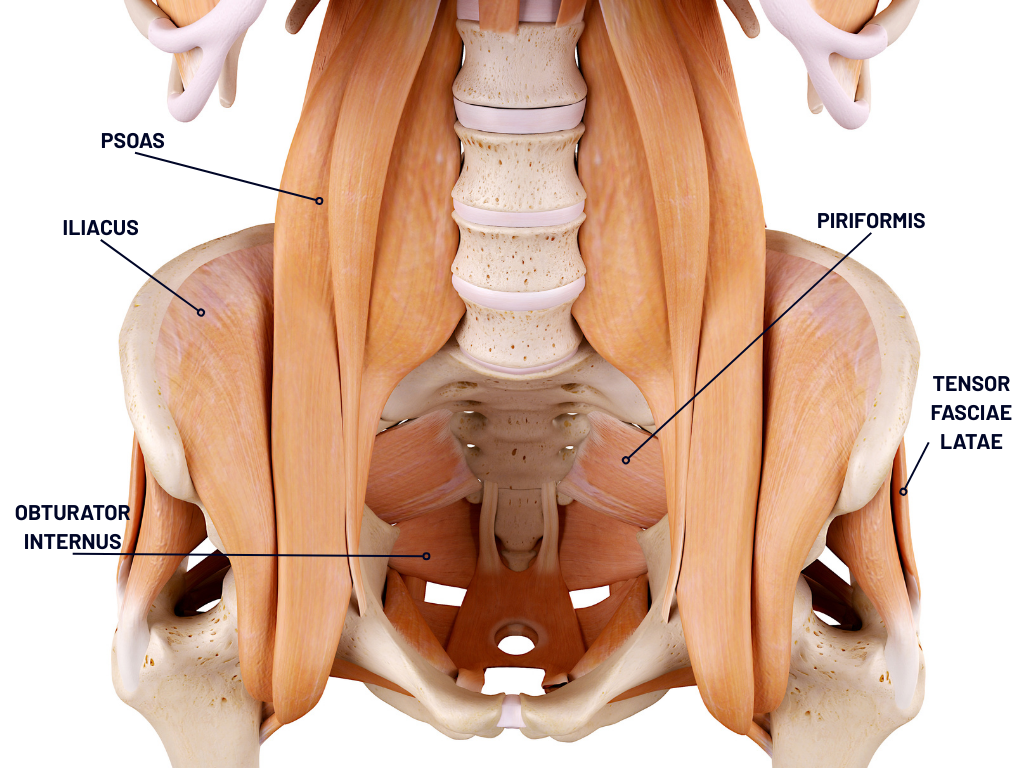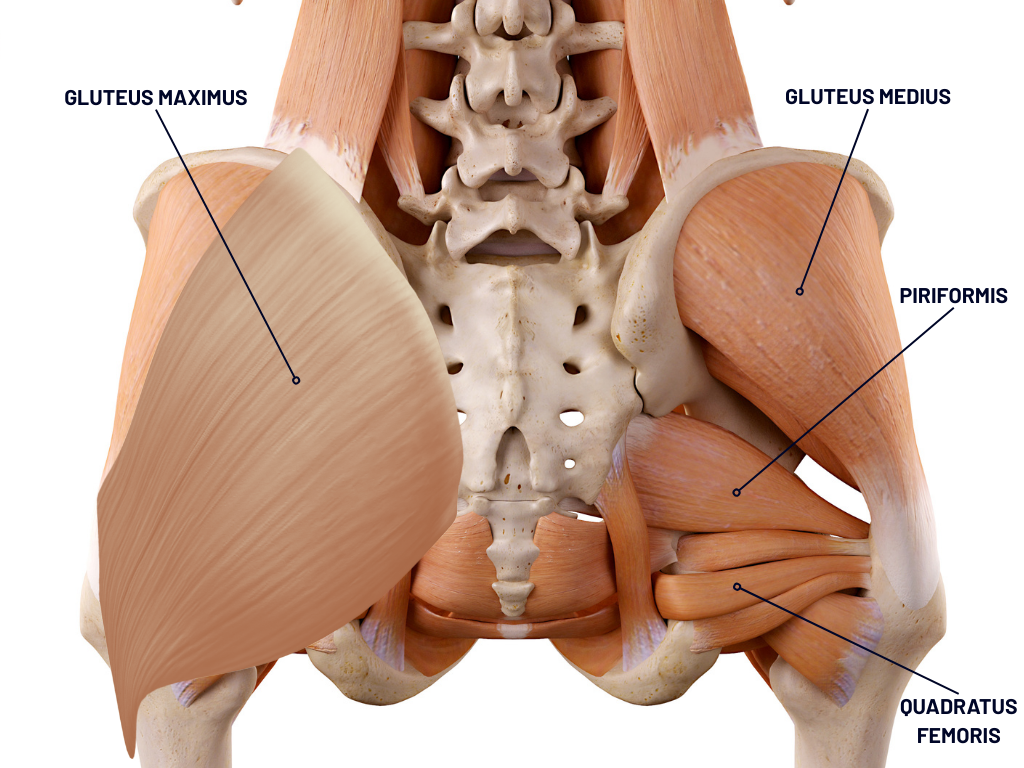Many of my patients come in with a dull ache or sharp pinch along the outside of the hip—pain that makes it uncomfortable to walk, climb stairs, or even sleep on that side. When the outer hip muscles tighten or become inflamed, daily movement can feel like a chore.

These outer hip stretches are the same ones I teach in clinic. They calm irritated tissue, restore flexibility, and reduce pain without the need for equipment. Most can be done in just a few minutes each day.
Stretching also feels good because it triggers your body’s relaxation response and helps release tension that limits healthy blood flow. Gentle motion is medicine—it encourages recovery instead of guarding or stiffness.
Causes of Outer Hip Pain & Tightness
The outer hip is stabilized by the gluteus medius, gluteus minimus, and tensor fasciae latae (TFL). Together, these hip abductors keep the pelvis level and guide the leg during walking or running. When they’re weak or overworked, pain can radiate across the side of the hip or thigh.
Common sources include prolonged sitting, repetitive movements, or imbalances between the glutes and core. Conditions such as trochanteric bursitis, gluteal tendinopathy, or irritation from a pinched nerve may create similar symptoms. Sometimes what feels like hip pain actually begins in the lower back or knee. A structured hip physical therapy program can help identify the cause and guide recovery.
These stretching exercises target both the hip external rotator muscles and the connective tissues that limit motion, helping relieve discomfort and restore balanced movement through the hip joint.
Tissue Release
Before stretching, I often start patients with light self-massage to loosen tight fascia. Using a massage ball or foam roller over the outer thigh, glutes, and TFL for 30 to 60 seconds helps reduce tension and improve blood flow. Move slowly and pause when you find tender spots—breathing deeply allows the muscle to relax naturally.
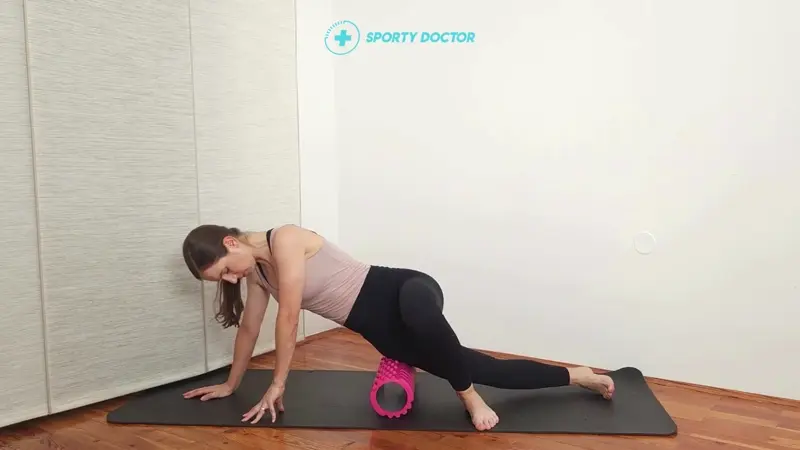
Releasing the outer thigh and TFL also supports the IT band stretches for hip pain you’ll find in the Sporty Doctor App. Think of this step as preparing the tissue so the following stretches can work effectively.
Stretches for Outer Hip Pain
These 10 stretches for outer hip pain are super easy to do. They’ll target your hamstrings, hip flexors, hip rotators, and gluteal muscles. If any of these stretches are too painful to perform, seek medical advice from your physician, physical therapist, or orthopedic specialist.
Kneeling Lunge with Side Bend
This stretch opens the front and outer hip, lengthening the TFL and hip flexors while improving lateral mobility. Begin in a half-kneel with one leg forward, knee above ankle.
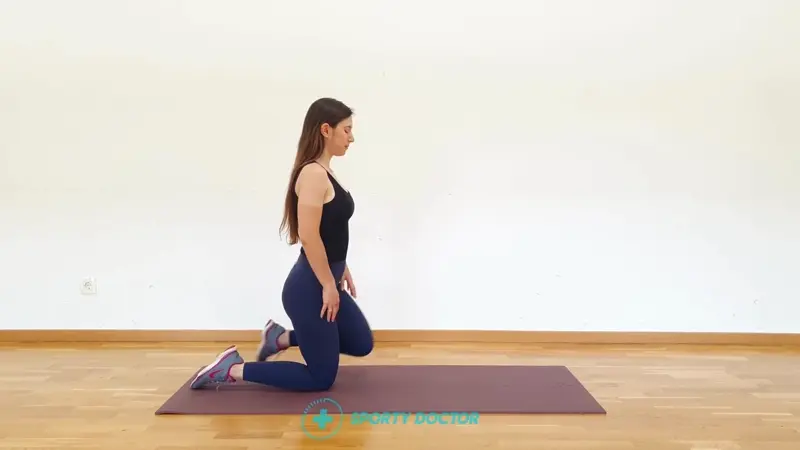
Press your hips gently forward, reach the same-side arm overhead, and lean away from the front leg. The side bend lengthens tissue from ribs to thigh, easing tension that often contributes to hip pain and low back pain.
Pigeon Stretch
The Pigeon Stretch targets the gluteus medius, piriformis, and other deep rotators that can compress the sciatic nerve.
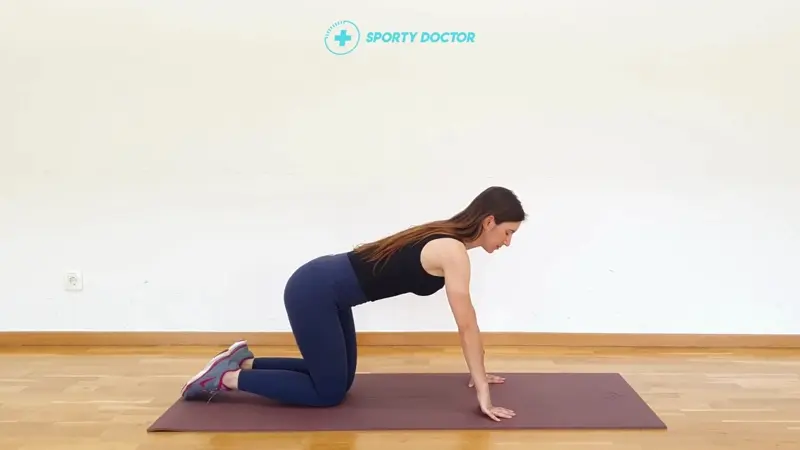
From all fours, bring one shin forward, extend the other leg back, and square your hips to the floor. Fold forward comfortably, breathing into the stretch. This position releases deep hip tension, restores rotation, and relieves the pulling sensation that often radiates from the outer hip to the thigh.
IT Band Wall Stretch
Standing beside a wall, cross the outer leg behind the other and reach the same arm overhead. Lean gently toward the wall until you feel a smooth stretch from hip to ankle.
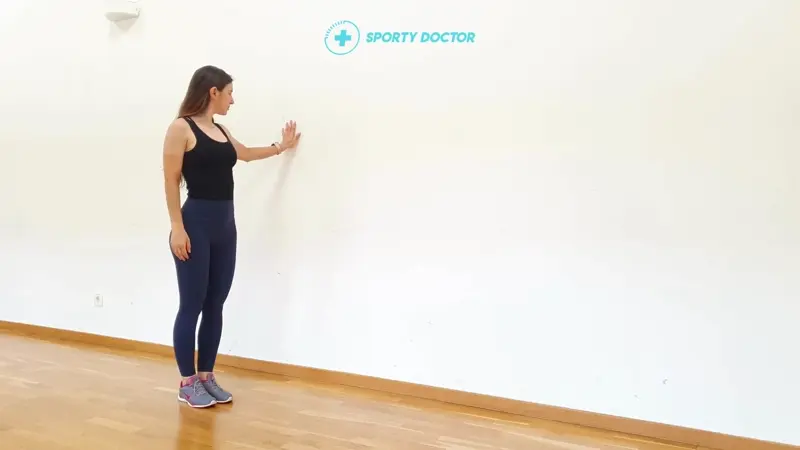
The Standing IT Band Stretch lengthens the TFL and fascia along the thigh, easing pressure that can irritate the knee and supporting overall hip joint alignment.
Supine Knee Side to Side
Lie on your back with knees bent and feet flat. Drop both knees slowly to one side, then the other, keeping shoulders anchored.
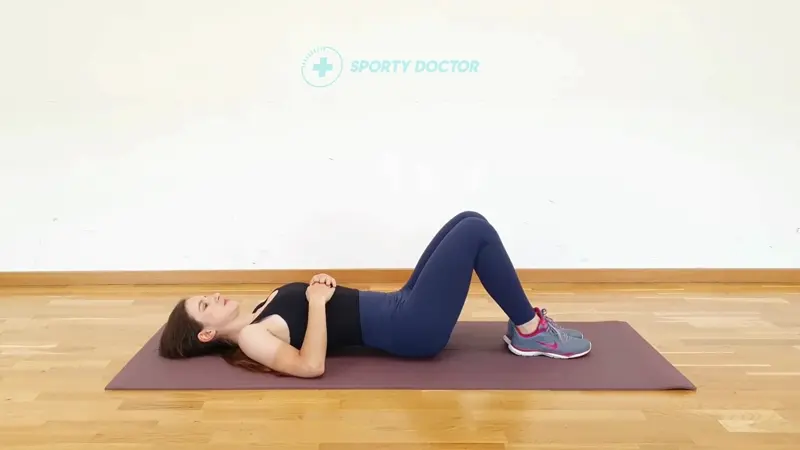
This gentle rotation mobilizes the glutes, hip abductors, and lower back while promoting circulation. It’s a calming stretch that works well before bed or following a workout to reduce stiffness through the outer hips.
Figure Four Stretch
The Figure Four Stretch releases the piriformis and gluteus medius. Lying on your back, cross one ankle over the opposite knee and gently pull the legs toward your chest.
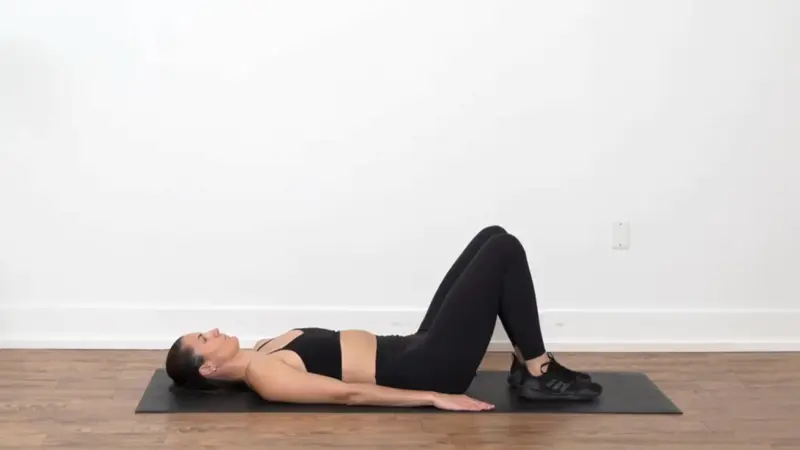
Keep hips relaxed and spine neutral. You’ll feel a deep opening through the outer hip and buttock, easing pressure that can radiate down the leg and improving flexibility for everyday movement.
Seated Spinal Twist
Sit tall, cross one leg over the other, and rotate toward the bent knee. The Seated Spinal Twist combines hip rotation with gentle spinal motion to stretch the TFL, outer glutes, and obliques.
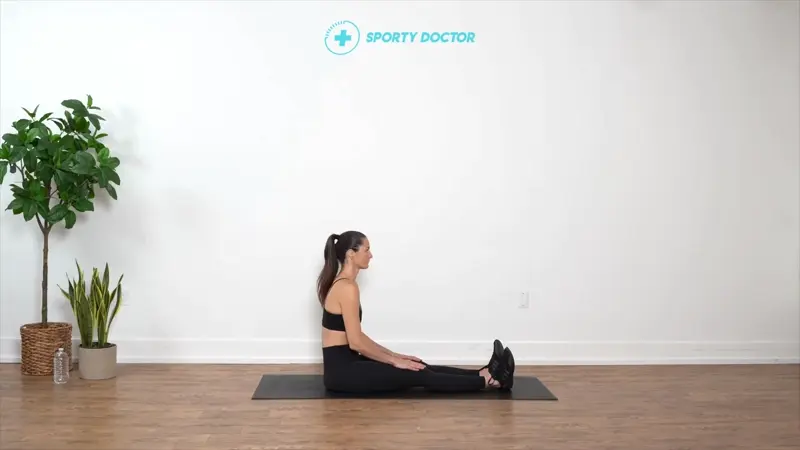
It helps balance both sides of the body, improving posture and reducing stiffness that often accompanies chronic hip pain or desk-related tension.
Frog Pose
From hands and knees, widen your knees gradually while keeping hips in line and chest relaxed. Frog Pose deeply opens the hip adductors and outer rotators, releasing compression around the groin and inner thigh.
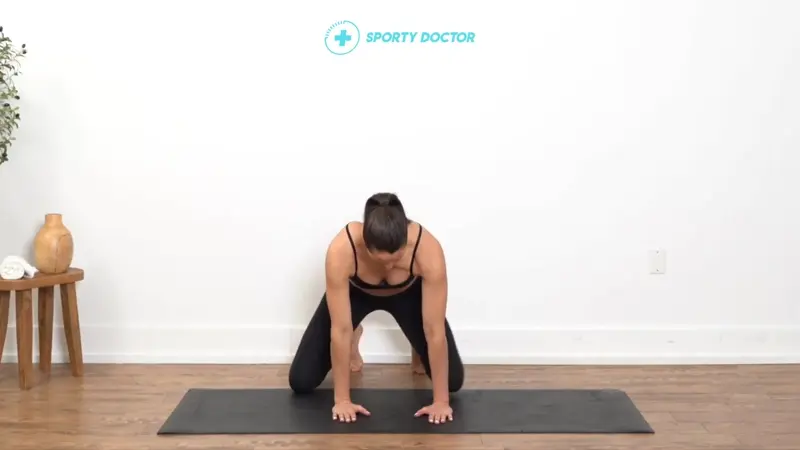
As the hips sink toward the floor, breathing steadily enhances flexibility and restores healthy range for walking and squatting.
Triangle Pose
Step into a wide stance, turn one foot out, and reach the same arm down toward the ankle while extending the opposite arm upward. Triangle Pose stretches the glute medius, TFL, and hamstrings.
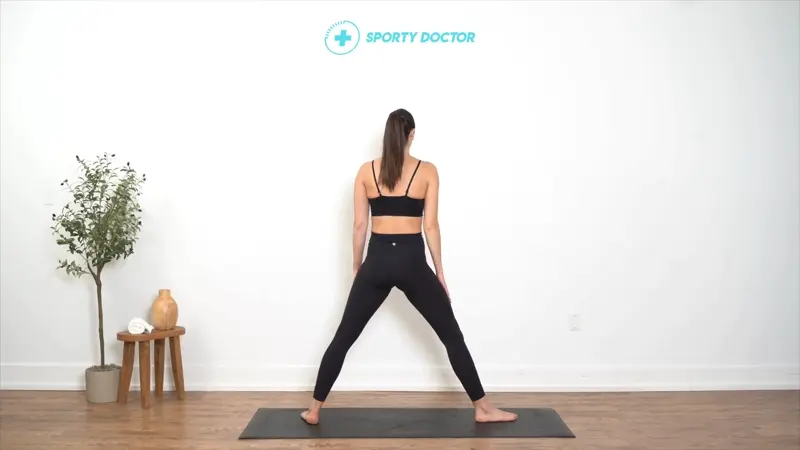
It builds balance and coordination while lengthening tight tissue through the outer hip—an excellent combination of strength and mobility for long-term joint health.
Knee to Chest Stretch
Lie flat, pull one knee gently toward your chest, and hold while keeping the other leg extended. This movement targets the gluteus maximus and lower back, promoting blood flow and reducing morning stiffness.
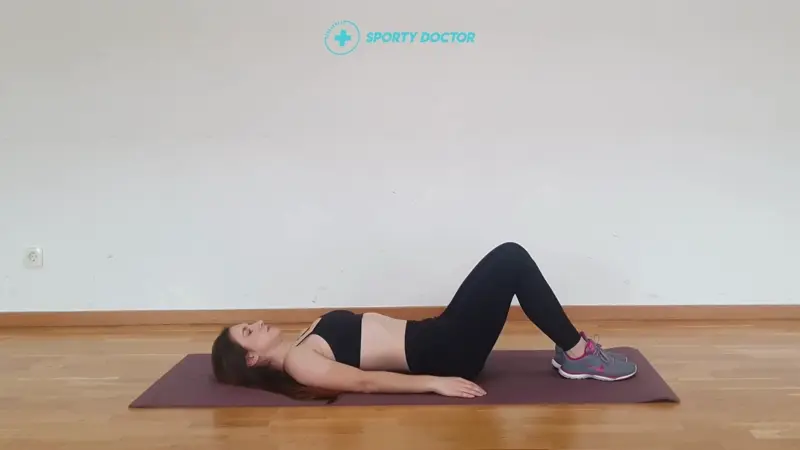
It’s ideal for easing tension from hip joint inflammation, bursitis, or tendon irritation, and provides an immediate sense of relief after long periods of sitting.
Butterfly Stretch
Sit upright with the soles of your feet together and knees open to each side. Hold your ankles and allow gravity to draw the knees downward.
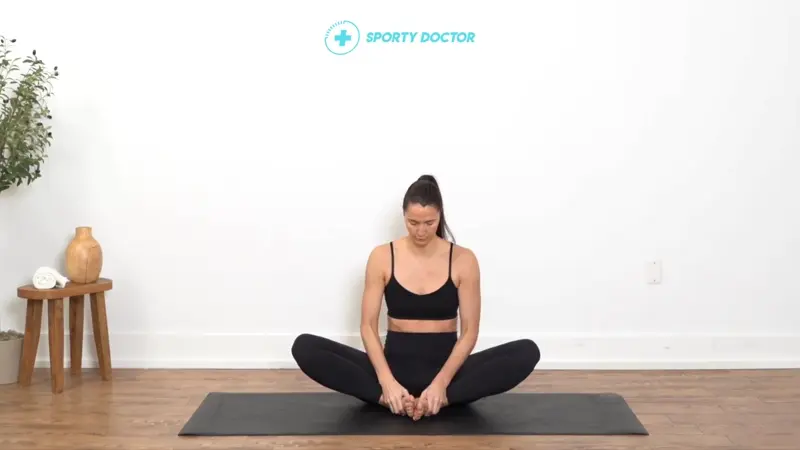
The Butterfly Stretch loosens the hip adductors and outer rotators, supporting flexibility for walking, running, and everyday activities. It pairs perfectly with strengthening work such as Plié Squats and Side Lunges to maintain balanced hip mobility.
Improving Your Hip Mobility
As pain decreases, strengthening becomes key to lasting improvement. These exercises help stabilize the pelvis and protect the outer hip from recurring irritation:
- Plié Squat – Builds hip adductor strength and core stability.
- Side Lunge – Strengthens hip abductors and improves lateral control.
- 90/90 Hip Switches – Enhances rotation and balance.
- Deep Squat Rotations – Promotes coordination through the hips and spine.
- Side Leg Lifts – Activates outer hip muscles for stability.
- Clamshell – Engages hip external rotator muscles to correct imbalance.
Combining mobility and strength is essential for preventing future hip pain and maintaining independence as you age.
Managing Outer Hip Pain
If discomfort persists beyond two weeks, consult a healthcare professional. They may recommend targeted therapy, imaging, or guided rehabilitation to address underlying inflammation or weakness. Avoid relying solely on pain medication—it can mask the issue rather than solve it.
Addressing the root cause with structured movement is key. The Sporty Doctor App offers physician-designed routines that blend stretching, strengthening, and recovery so you can move confidently again—without the guesswork.
